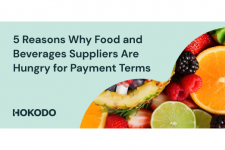Food crisis needed for Europe to accept GM: US government adviser

Jack Bobo, senior biotechnology adviser to the US State Department, told a Chartered Institute of Marketing seminar in London yesterday (February 28): “It will take a crisis to make everyone [in Europe] see the point of GM."
“There will be a move from not liking GM [food technology] to requiring it. That was the worst possible outcome but, unfortunately, it was also the most likely outcome.”
In his lecture – Can agriculture save the world before it destroys it? – Bobo argued that GM food technology was vital to safeguard food security, economic security and national security.
GM techniques could deliver improved yields and nutrition while reducing the use of pesticides, greenhouse gas emissions, water use and soil erosion, he said.
‘Peak child’
As the global population was predicted to reach more than 9bn by 2050, the benefits of GM could no longer be ignored in an increasingly hungry world. “Since the world had now reached ‘peak child’ [the highest number of children there will ever be], the decisions made between now and 2050 would be the most important [food] decisions that will ever be taken. Either we cut down more forest, or do it [agriculture] in a more sustainable way than at present.”
Feeding up to 9bn people will require the world to produce as much food as in the previous 10,000 years, he said. To do that will require the best of different technologies, including organic techniques such as minimum cultivations to save water, plus conventional farming and GM, he said.
But such an eclectic approach to food production would require more effective dialogue between people with opposing views, he added.“We need to move from protest to conversation.”
No single technology supplied all the answers to meeting the challenge of increased food production. For example, biotechnology “isn’t going to solve climate change or food security by itself”.
‘No exportable surplus food’
But adopting solely organic farming would severely limit yield, he said. “If the US were all organic, we would have no exportable surplus food. We would have enough food for the US, but there would be repercussions.”
For example, Europe depended on food imports – particularly from Brazil. While Europe had the right to decide its own food policy – such as to reject GM production – it should be aware of “the consequences of those choices” both at home and for trade partners, he said.
“The extra land mass [outside the continent] needed to feed Europe is about the size of Germany. This is the consequence of technology choices.”
Bobo also highlighted the need to understand that agricultural exports involved not just food but the water used to produce it. “When we ship steak to Europe, we also ship the embedded water used to make it,” he said. “70% of all the world’s fresh water goes to agriculture.”
Meanwhile, Nestlé boss Paul Bulcke, speaking earlier this week at the City Food Lecture, urged industry, government and other stakeholders to act decisively to mitigate the massive food shortages. “It is anticipated that there will be up to 30% shortfalls in global cereal production by 2030 due to water scarcity,” said Bulcke. “This is a loss equivalent to the entire grain crops of India and the United States combined.”
Don’t miss Bobo’s US perspective on horsemeat, GM and British supermarkets next week on FoodManufacture.co.uk.
Jack Bobo in quotes
- Demographics: “The number of children in the world today will never be greater than it is now. We have reached 'peak child'.”
- Organic: “In general, organic agriculture produces about one-third less than conventional agriculture. But it can produce more of some products [such as fruit]”
- Trade: “European [food] choices affect agriculture in Brazil, because it’s the biggest exporter to Europe. Europe has the right to make its own food choices but it must be aware of the consequences of those choices.”
- Science: “Science and technology are considered to be bad but they have helped us reach where we are today.”
- US food production: “The goal is not for the US to feed the world but for the world to feed itself. Not for us to give food to Africa forever but to help farmers before food crises happen.”





















